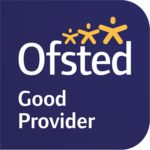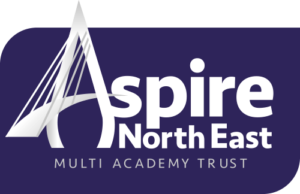Modern Foreign Languages Curriculum Overview
Aim
Here at Southmoor Multi Academy Trust, we aim to securely equip all of our students for life beyond school as successful, confident, responsible and respectful citizens. We believe that education provides the key to social mobility and our curriculum is designed to build strong foundations in the knowledge, understanding and skills which lead to academic and personal success. We want our students to enjoy the challenges that learning offers.
Our aims are underpinned by a culture of high aspirations. Through developing positive relationships, we work towards every individual having a strong belief in their own abilities so that they work hard, build resilience and achieve their very best.
Intent
The curriculum includes formal teaching through subject areas, assemblies and extracurricular activities. We regularly review content to ensure we continue to meet our curriculum aims. The MFL curriculum is planned to enable all students to develop:
- Communication skills
- An ability to manipulate language
- Problem solving and enquiry
- Intercultural awareness
- Opportunities for further study or application of language learning
Throughout our programmes of study, every attempt is made to make explicit links to careers and the world of work. In addition to subject specific links, we aim to explicitly reinforce the skills and aptitudes which support employers say are important in the workplace;
- Aiming high, staying positive and resilience
- Communication skills (listening, speaking, presenting)
- Teamwork and problem solving,
- Creativity and thinking skills
- Self-management and leadership
The British values of democracy, the rule of law, individual liberty, and mutual respect of those with different faiths and beliefs are taught explicitly and reinforced in the way in which the school operates.
Sequence and structure
Our curriculum is split in to Key Stage 3 (years 7, 8 and 9) and Key Stage 4 (years 10 and 11). Our longer school day and generous allocation of curriculum time ensures a strong foundation of knowledge and skills for success at KS4.
Year 7 KS3 Curriculum
Click here to view the Year 7 German curriculum intent for 2022-2023.
We know that students who read well achieve well. As such all subject areas are committed to providing regular opportunities to read extensively. We provide regular opportunities for students to read for pleasure and to receive small group interventions if their reading skills are lower than we would expect.
Year 8 KS3 Curriculum
Click here to view the Year 8 French curriculum intent for 2022-2023.
Click here to view the Year 8 German curriculum intent for 2022-2023.
We know that students who read well achieve well. As such all subject areas are committed to providing regular opportunities to read extensively. We provide regular opportunities for students to read for pleasure and to receive small group interventions if their reading skills are lower than we would expect.
Year 9 KS3 Curriculum
Click here to view the Year 9 French curriculum intent for 2022-2023.
Click here to view the Year 9 German curriculum intent for 2022-2023.
We know that students who read well achieve well. As such all subject areas are committed to providing regular opportunities to read extensively. We provide regular opportunities for students to read for pleasure and to receive small group interventions if their reading skills are lower than we would expect.
Year 10 KS4 Curriculum
Our Year 10 Key Stage 4 Curriculum
At Key Stage 4 students follow the AQA GCSE specification for French.
KS4 Half term 1 Half term 2 Half term 3 Half term 4 Half term 5 Half term 6 Year 10 French Qui suis-je?(Identity and culture) Qui suis-je?(Identity and culture) Le temps de loisirs(Identity and culture) Jour ordinaires, jours de fête (Identity and culture) De la ville à la campagne(Local, national, international and global areas of interest ) Le grand large… (Local, national, international and global areas of interest)
At Key Stage 4 students follow the AQA GCSE specification for German.
KS4 Half term 1 Half term 2 Half term 3 Half term 4 Half term 5 Half term 6 Year 10 German Auf in die Schule!(Current and future study and employment) Zeit für Freizeit(Identity and culture) Menschliche Beziehungen(Identity and culture) Menschliche Beziehungen(Identity and culture) Wilkommen bei mir (Identity and culture
Ich liebe Wien!(Local, national, international and global areas of interest) We know that students who read well achieve well. As such all subject areas are committed to providing regular opportunities to read extensively. We provide regular opportunities for students to read for pleasure and to receive small group interventions if their reading skills are lower than we would expect.
Year 11 KS4 Curriculum
Our Year 11 Key Stage 4 Curriculum
At Key Stage 4 students follow the AQA GCSE specification for French.
KS4 Half term 1 Half term 2 Half term 3 Half term 4 Half term 5 Half term 6 Year 11 French Le grand large… ( Local, national, international and global areas of interest) Au collège ( Current and future study and employment ) Bon travail! ( Current and future study and employment ) Un œil sur le monde(Local, national, international and global areas of interest) Un œil sur le monde(Local, national, international and global areas of interest) Skills work/exam-style practice At Key Stage 4 students follow the AQA GCSE specification for German.
KS4 Half term 1 Half term 2 Half term 3 Half term 4 Half term 5 Half term 6 Year 11 German Im Urlaub und zu Hause(Local, national, international and global areas of interest) Im Urlaub und zu Hause(Local, national, international and global areas of interest) Rund um die Arbeit (Current and future study and employment) Eine wunderbare Welt (Local, national, international and global areas of interest) Eine wunderbare Welt (Local, national, international and global areas of interest) Revision and Assessment, Skills work, Exam-style practice We know that students who read well achieve well. As such all subject areas are committed to providing regular opportunities to read extensively. We provide regular opportunities for students to read for pleasure and to receive small group interventions if their reading skills are lower than we would expect.
KS5 Curriculum
Our Key Stage 5 Curriculum:
Click here to view the KS5 – Year 12 German curriculum intent for 2022-2023.
Click here to view the KS5 – Year 12 French curriculum intent for 2022-2023.
Click here to view the KS5 – Year 13 German curriculum intent for 2022-2023.
Click here to view the KS5 – Year 13 French curriculum intent for 2022-2023.
We know that students who read well achieve well. As such all subject areas are committed to providing regular opportunities to read extensively. We provide regular opportunities for students to read for pleasure and to receive small group interventions if their reading skills are lower than we would expect.
How does our Curriculum cater for students with SEND?
Southmoor Multi Academy Trust is an inclusive academy where every child is valued and respected. We are committed to the inclusion, progress and independence of all of our students, including those with SEN. We work to support our students to make progress in their learning, their emotional and social development and their independence. We actively work to support the learning and needs of all members of our community.
A child or young person has SEN if they have a learning difficulty or disability which calls for special educational provision to be made that is additional to or different from that made generally for other children or young people of the same age. (CoP 2015, p16)
Teachers are responsible for the progress of ALL students in their class and high-quality teaching is carefully planned; this is the first step in supporting students who may have SEND. All students are challenged to do their very best and all students at the Academy are expected to make at least good progress.
Specific approaches which are used within the curriculum areas include:
- A focus on expanding core vocabulary and building sentences and texts.
- Clear links with literacy skills and strategies used in the students’ first language.
- Access to a Higher Level Teaching Assistant with MFL qualifications to support with in-class and small group interventions.
How does our curriculum cater for disadvantaged students and those from minority groups?
As a school serving an area with high levels of deprivation, we work tirelessly to raise the attainment for all students and to close any gaps that exist due to social contexts. The deliberate allocation of funding and resources has ensured that attainment gaps are closing in our drive to ensure that all pupils are equally successful when they leave the Academy. More specifically within the teaching of MFL, we:
- Provide revision materials to support pupils when preparing for assessments.
- Offer regular intervention sessions to support learners in making good progress.
- Offer time and space to complete homework outside of lesson time.
- Ensure access to any trips or visits is made possible for all students.
How do we make sure that our curriculum is implemented effectively?
The MFL curriculum leader is responsible for designing the MFL curriculum and monitoring implementation.
The MFL leader’s monitoring is validated by senior leaders.
Staff have regular access to professional development/training to ensure that curriculum requirements are met.
Effective assessment informs staff about areas in which interventions are required. These interventions are delivered during curriculum time to enhance pupils’ capacity to access the full curriculum.
Curriculum resources are selected carefully and reviewed regularly.
Assessments are designed thoughtfully to assess student progress and also to shape future learning.
Assessments are checked for reliability within departments and across the Trust.
We have Southmoor Sixth Form to promote opportunities for further study of languages beyond GCSE
We make clear links to the world of work when discussing careers and life beyond secondary school as part of the GCSE specification.
The MFL department contributes to whole school events and activities to promote the transferable skills developed through language learning and their application to the work of work.
How do we make sure our curriculum is having the desired impact?
- Examination results analysis and evaluation
- Termly assessments-analysis and evaluation meetings
- Half-termly milestone assessments –analysis and evaluation meetings
- Lesson observations
- Learning walks
- Work scrutiny
- Regular feedback from Teaching Staff during department meetings
- Regular feedback from Middle Leaders during curriculum meetings
- Pupil Surveys
- Parental feedback
- Evaluation of staff CPD and student events





